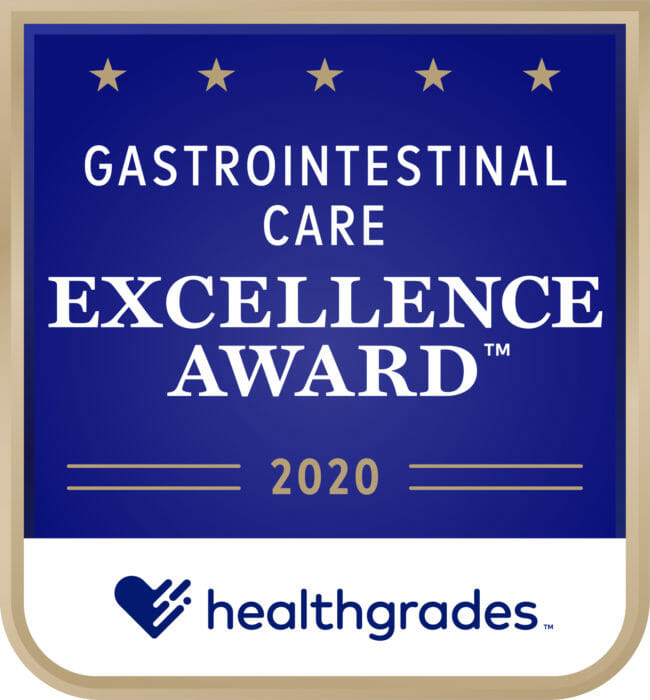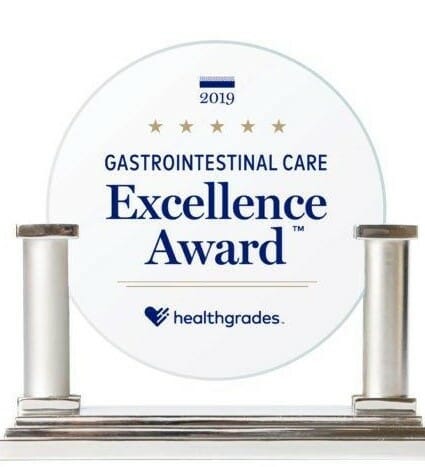Acid Reflux Disease and GERD
QUICK LINKS

What is Acid Reflux Disease and GERD?
Acid reflux disease is a chronic condition of the digestive tract. It occurs when stomach acid backs up (refluxes) into the esophagus, which irritates the tissue lining. This happens when your lower esophageal sphincter relaxes or weakens and doesn’t close like it’s supposed to. The lower esophageal sphincter is a band of muscle at the bottom of your esophagus that pushes food and liquids to the stomach. When it doesn’t close all the way, acid from your stomach moves up into your esophagus, leading to a burning pain in your chest – heartburn. Acid reflux and heartburn may be common occurrences for many individuals. But when you have frequent symptoms and they get in the way of your daily life, or when the stomach acid starts to damage the wall of your esophagus, you may have gastroesophageal reflux disease, or GERD.
What are the Symptoms of Acid Reflux Disease and GERD?
Signs and symptoms of acid reflux disease include:
- A burning sensation that may move from your stomach up your abdomen into your chest (heartburn)
- A sour or bitter-tasting acid in your throat or mouth that backs up from your stomach (regurgitation)
- Bloated feeling
- Burping
- A sensation of food being stuck in your throat
- Hiccups that won’t go away
- Dry cough, wheezing, sore throat, or hoarse voice
Signs and symptoms of GERD include:
- Heartburn, usually after eating, which might be worse at night
- Chest pain or discomfort
- Difficulty swallowing
- Chronic dry cough
- Hoarseness or laryngitis
- Regurgitating food or sour liquid
- Feeling that there is a lump in your throat
- Asthma
- Bad breath
If you have these symptoms frequently or they are very uncomfortable or painful, or if you take over-the-counter medication for heartburn relief more than twice a week and your symptoms don’t go away, it’s time to see a doctor. Schedule an appointment with one of the providers at Digestive Health Associates of Cheyenne so we can diagnose your condition and talk to you about the best treatment options. If you don’t see a doctor for your condition, you could develop complications such as bleeding in your esophagus, a narrowing of your esophagus that can lead to food getting stuck called esophageal stricture, or a serious pre-cancerous condition called Barrett’s esophagus.
How Do You Treat Acid Reflux Disease or GERD?
Lifestyle changes and over-the-counter medications may help you manage acid reflux disease and prevent damage to your esophagus. Your doctor will tell you how. Depending on how frequent your symptoms are and how much pain your acid reflux disease causes you, your doctor may recommend you take prescription medications or even have surgery to relieve your symptoms and make you feel better.
Our board-certified, experienced physicians at Digestive Health Associates of Cheyenne strive to provide patients with the best treatment options to manage acid reflux disease or GERD. Call us today at 307.635.4141 to schedule an appointment.
Learn More: Acid Reflux Disease or GERD
American College of Gastroenterology
Cleveland Clinic
Mayo Clinic
Ready to Schedule an Appointment or Need More Information?
At Digestive Health Associates, we are dedicated to helping you achieve and maintain an optimal level of digestive health.









